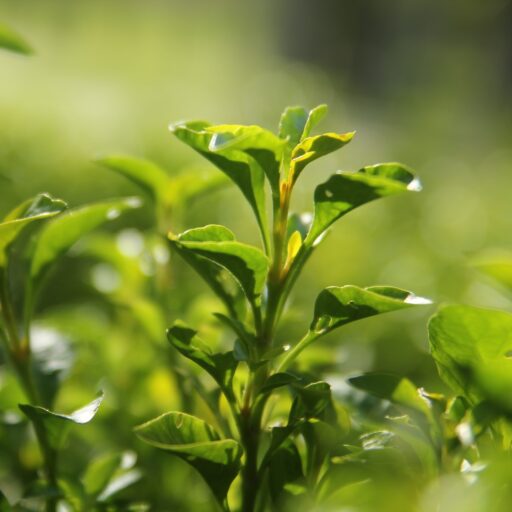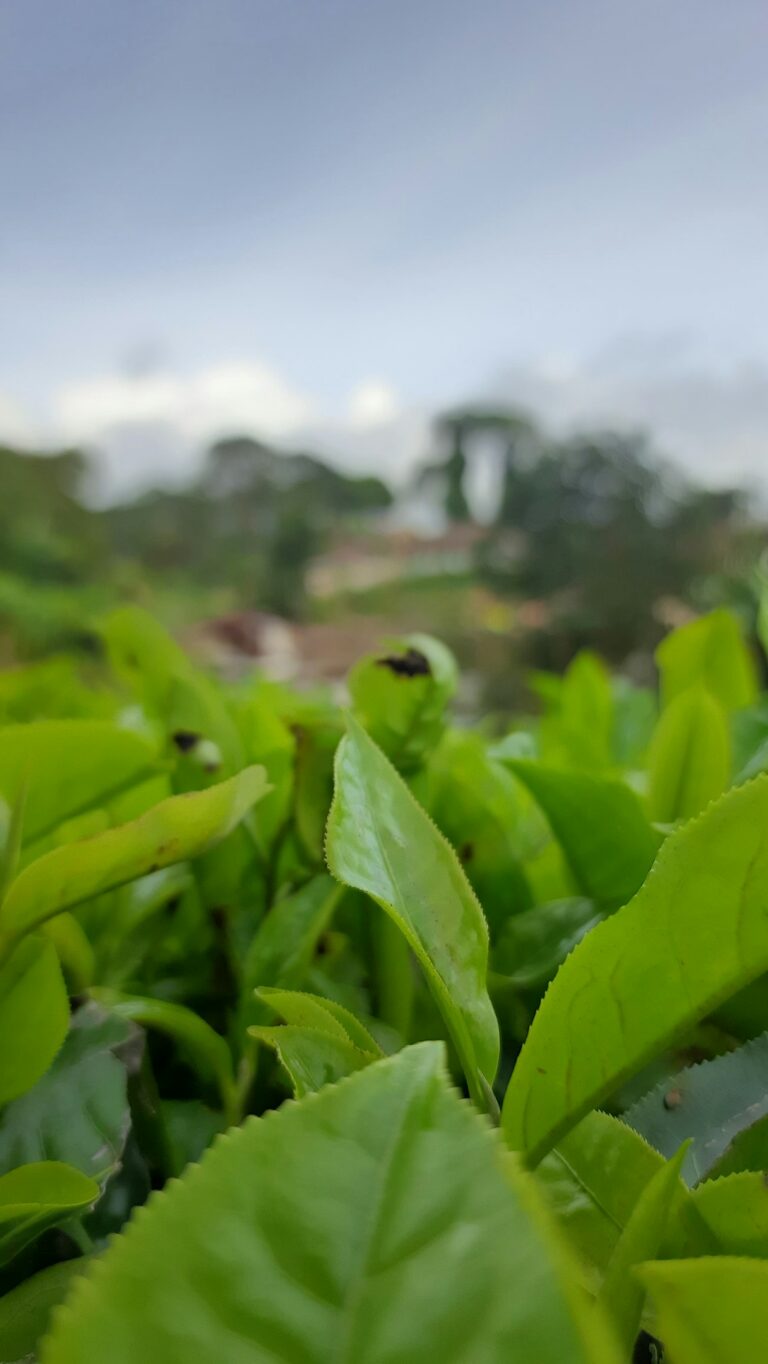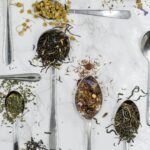Support our educational content for free when you purchase through links on our site. Learn more
Are Camellia sinensis leaves edible? [2023]
Did you know that the leaves of the Camellia sinensis plant, the same plant used to make tea, are edible? Yes, you heard that right! In this article, we will explore the topic of whether Camellia sinensis leaves are edible and delve into the various aspects surrounding this intriguing question. So, let’s get started!
Table of Contents
- Quick Answer
- Quick Tips and Facts
- Background
- Are Camellia sinensis leaves edible?
- How to prepare and consume Camellia sinensis leaves
- Potential health benefits of consuming Camellia sinensis leaves
- Potential downsides of consuming Camellia sinensis leaves
- FAQ
- Conclusion
- Recommended Links
- Reference Links
Quick Answer
Yes, Camellia sinensis leaves are edible. In fact, they are the leaves used to make various types of tea, such as green tea, black tea, white tea, and oolong tea. These leaves are rich in bioactive compounds that offer numerous health benefits. You can consume Camellia sinensis leaves by brewing them in hot water to make a delicious and refreshing cup of tea.
Shop Camellia sinensis leaves on: Amazon | Walmart | Etsy
Quick Tips and Facts
- Camellia sinensis leaves are the leaves of the tea plant and are used to make various types of tea.
- These leaves are rich in bioactive compounds, including catechins, caffeine, and L-theanine, which contribute to their health benefits.
- You can consume Camellia sinensis leaves by brewing them in hot water to make tea.
- Different types of tea are made from Camellia sinensis leaves, such as green tea, black tea, white tea, and oolong tea, each with its own unique flavor and characteristics.
Background
Before we dive into the topic of whether Camellia sinensis leaves are edible, let’s take a moment to understand the background and history of this fascinating plant.
Camellia sinensis is an evergreen shrub native to East Asia, particularly China, India, and Japan. It is cultivated for its leaves, which are used to make tea. The plant has been cultivated for thousands of years and has a rich cultural and historical significance in many countries.
Tea, made from the leaves of the Camellia sinensis plant, is one of the most widely consumed beverages in the world. It is known for its refreshing taste, aroma, and various health benefits. The leaves of the Camellia sinensis plant undergo different processing methods to produce different types of tea, such as green tea, black tea, white tea, and oolong tea.
Now that we have a basic understanding of the background of Camellia sinensis, let’s explore whether its leaves are edible.
Are Camellia sinensis leaves edible?
✅ Yes, Camellia sinensis leaves are edible. In fact, they are the leaves used to make various types of tea, such as green tea, black tea, white tea, and oolong tea. These leaves are rich in bioactive compounds that offer numerous health benefits.
When the leaves of the Camellia sinensis plant are harvested, they undergo different processing methods to create different types of tea. For example, green tea is made from leaves that are steamed or pan-fried to prevent oxidation, while black tea is made from leaves that are fully oxidized. White tea is made from young leaves and buds that are minimally processed, and oolong tea is made from leaves that are partially oxidized.
The process of making tea involves steeping the Camellia sinensis leaves in hot water, which allows the bioactive compounds in the leaves to infuse into the water, creating a flavorful and aromatic beverage. By consuming the brewed tea, you are essentially consuming the Camellia sinensis leaves.
How to prepare and consume Camellia sinensis leaves
To prepare and consume Camellia sinensis leaves, you can follow these simple steps:
- Choose your preferred type of tea: Green tea, black tea, white tea, or oolong tea.
- Boil water and let it cool slightly to the recommended temperature for your chosen tea type.
- Place the Camellia sinensis leaves in a teapot or tea infuser.
- Pour the hot water over the leaves and let them steep for the recommended time, usually a few minutes.
- Strain the tea leaves and pour the brewed tea into a cup.
- Enjoy your cup of tea!
You can also experiment with different brewing methods and steeping times to find your perfect cup of tea. Some people enjoy adding honey, lemon, or other flavorings to enhance the taste of their tea.
Potential health benefits of consuming Camellia sinensis leaves
Consuming Camellia sinensis leaves, in the form of brewed tea, can offer a range of potential health benefits. Here are some of the key benefits associated with the consumption of Camellia sinensis leaves:
-
Antioxidant properties: Camellia sinensis leaves are rich in antioxidants, such as catechins, which help protect the body against oxidative stress and damage caused by free radicals.
-
Heart health: Regular consumption of Camellia sinensis leaves has been linked to improved heart health. The bioactive compounds in the leaves may help lower cholesterol levels, reduce blood pressure, and improve blood vessel function.
-
Weight management: Some studies suggest that the bioactive compounds in Camellia sinensis leaves, particularly catechins and caffeine, may help boost metabolism and promote weight loss.
-
Brain health: The caffeine and L-theanine present in Camellia sinensis leaves may have positive effects on brain function, including improved focus, alertness, and cognitive performance.
-
Digestive health: Camellia sinensis leaves have been traditionally used to support digestive health and alleviate digestive issues such as bloating and indigestion.
It’s important to note that while Camellia sinensis leaves offer potential health benefits, individual results may vary. It’s always a good idea to consult with a healthcare professional before making any significant changes to your diet or lifestyle.
Potential downsides of consuming Camellia sinensis leaves
While Camellia sinensis leaves are generally safe for consumption, there are a few potential downsides to be aware of:
-
Caffeine content: Camellia sinensis leaves naturally contain caffeine, which can have stimulating effects. If you are sensitive to caffeine or have certain health conditions, such as anxiety or insomnia, it’s important to moderate your consumption of tea made from Camellia sinensis leaves.
-
Possible side effects: Some individuals may experience side effects from consuming Camellia sinensis leaves, such as jitteriness, headaches, upset stomach, or allergic reactions. If you experience any adverse effects, it’s best to discontinue use and consult with a healthcare professional.
-
Interactions with medications: Camellia sinensis leaves may interact with certain medications, such as blood thinners or medications for high blood pressure. If you are taking any medications, it’s advisable to consult with your healthcare provider before consuming tea made from Camellia sinensis leaves.
As with any dietary consideration, it’s important to listen to your body and make informed choices based on your individual needs and health circumstances.
FAQ
Can you use any Camellia leaves for tea?
No, not all Camellia leaves are suitable for making tea. Only the leaves of the Camellia sinensis plant are used to make tea. Other species of Camellia may have different properties and flavors and are not typically used for tea production.
Read more about “Can You Grow Your Own Camellia sinensis? …”
What is the use of Camellia sinensis leaves?
The primary use of Camellia sinensis leaves is for making tea. These leaves are rich in bioactive compounds that contribute to the flavor, aroma, and health benefits of tea.
Read more about “… Can I Grow a Tea Plant Indoors? A Comprehensive Guide”
Is it OK to ingest green tea leaves?
Yes, it is generally safe to ingest green tea leaves. When you brew green tea, you are essentially consuming the leaves. However, it’s important to note that consuming excessive amounts of green tea leaves may lead to unwanted side effects due to the caffeine content.
Are tea tree leaves edible?
No, tea tree leaves (Melaleuca alternifolia) are not typically consumed as food. Tea tree oil, derived from the leaves of the tea tree, is commonly used in skincare and medicinal products due to its antimicrobial properties.
Conclusion
In conclusion, Camellia sinensis leaves are indeed edible and are used to make various types of tea. These leaves offer a range of potential health benefits, including antioxidant properties, heart health benefits, weight management support, and brain health benefits. However, it’s important to consume Camellia sinensis leaves in moderation and be aware of any potential side effects or interactions with medications. As always, it’s best to consult with a healthcare professional before making any significant changes to your diet or lifestyle.
So, the next time you enjoy a cup of tea, remember that you are not only savoring a delicious beverage but also reaping the potential health benefits of consuming Camellia sinensis leaves.







